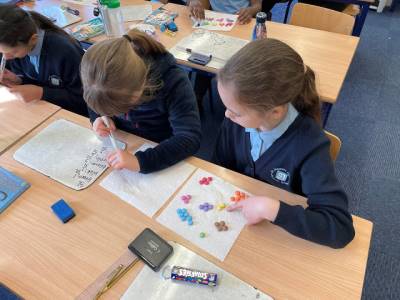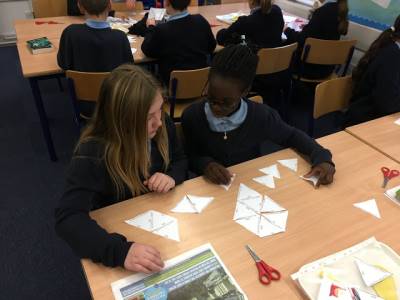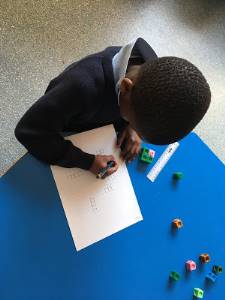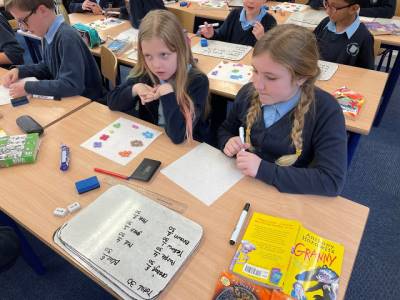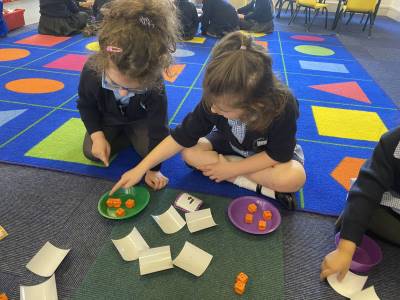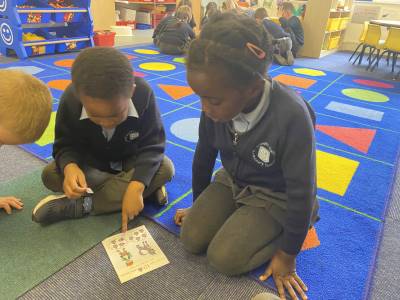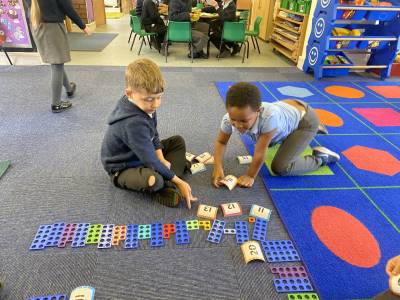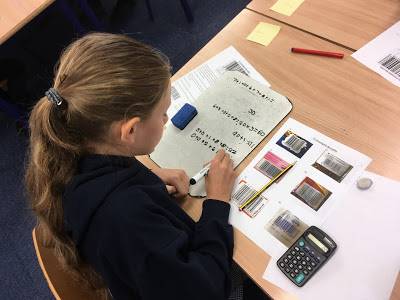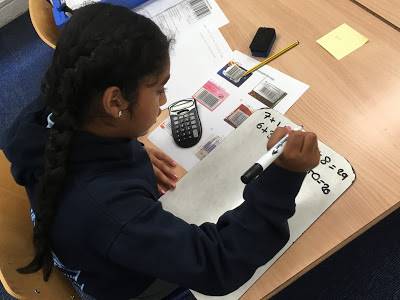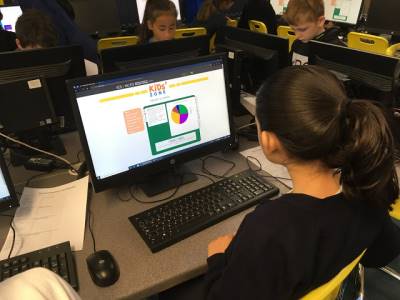Maths
CURRICULUM / MATHS GALLERY
Key Principles and Aims of the National Curriculum:
- Become fluent in the fundamentals of mathematics, including through varied and frequent practice with increasingly complex problems over time, so that pupils have conceptual understanding and are able to recall and apply their knowledge rapidly and accurately to problems.
- Reason mathematically by following a line of enquiry, conjecturing relationships and generalisations, and developing an argument, justification or proof using mathematical language.
- Can solve problems by applying their mathematics to a variety of routine and non-routine problems with increasing sophistication, including breaking down problems into a series of simpler steps and persevering in seeking solutions.
Click the picture to find the KS1 and 2 Mathematics Programme of Study.
See below for Early Years Foundation Stage Statutory Framework - Mathematics
statatory framework for the early years foundation stage mathematics.pdf
St Joseph's Maths Overview
At St. Joseph’s we intend to deliver Maths Mastery through a curriculum which teaches fluency, mathematical thinking and the use of manipulatives to enable and empower our pupils to develop a coherent knowledge and understanding of all aspects of Maths.
We aim to inspire pupils and foster a desire to learn their multiplication tables. We strive to encourage children to use correct mathematical vocabulary when answering questions to embed their knowledge and become fluent in maths.
Our Maths curriculum intends to help pupils become fluent, determined mathematicians, who can confidently explain their understanding and solve problems in all strands of maths.
Maths lessons are taught using White Rose Maths, an organisation that provides maths resources and Schemes of Learning. The Schemes of Learning outline yearly frameworks that break down what children need to learn during each week of each term to master the learning objectives laid out by the National Curriculum. And resources that are aligned with the White Rose Maths frameworks are designed to be enjoyable, engaging and varied, to help pupils develop a love of learning and work towards mastery with differentiated resources.
But what defines White Rose Maths more than their resources and frameworks is their approach to teaching maths. At the heart of their resources and frameworks is the motto “Everyone Can Do Maths: Everyone Can!” — a slogan that we wholeheartedly agree with!
Planning Overviews
Click on the link picture to find out more about White Rose Maths
We support all children in their learning by providing them with opportunities to
- use concrete objects and/or act out an idea or skill
- use visual, pictorial representations e.g. bar models to represent problems
- use abstract representation – the symbolic stage where there is an understanding of formal methods
We encourage our pupils to adopt an ‘I can’ attitude towards learning. We plan lessons that encourage pupils to:
- enjoy excelling in maths
- become enthusiastic learners
- explain what they are in their learning and how they have reached their answer(s)
- believe that by working hard at maths they can succeed
Implementing Number Fluency
At St Joseph's we want children to develop true computational fluency. Computational fluency means more than quickly producing correct answers. It requires conceptual understanding and is exhibited through efficiency, accuracy, and flexibility. So fluency demands more of students than memorising a single procedure - they need to understand why they are doing what they are doing and know when it is appropriate to use different methods. Therefore, we support computational fluency in two ways;
- Number Sense
This Number Facts Fluency Programme teaches a defined set of addition and subtraction facts and a defined set of calculation strategies. The systematic and structured approach ensures children develop key visual pathways and learn important number relationships. This leads to a deep understanding of number and number relationships, and to fluency in addition and subtraction facts.
We teach a daily Number Sense fact sessions in Years 1-3 that lasts 15 minutes.
Click on the picture below to find out more about Number Sense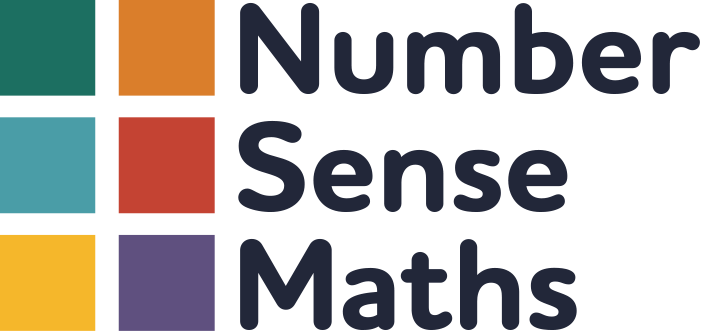
- St Joseph's Number Clubs
We also believe automatic recall supports children's fluency and therefore Maths Clubs have been designed by the staff of St Joseph's. These are to help children, from Year 1 onwards, improve the speed of recalling key maths facts. Knowing the key maths facts will enable children to be more confident and flexible in their ability to answer maths problems.
Children will work their way through the Maths clubs with regular tests in class. The tests are 3 minutes long. If the children pass the club on two separate occasions they will then move on to the next club. Children are regularly rewarded going through the clubs and homework is sent home reflecting the club that they are working on.
Here is the Number Clubs Progression Overview;
number clubs progression overview.pdf
Here is the Factual Fluency Overview;
Maths Policies
Maths policies are currently being created and adapted. Please watch this space for updates.
 St Joseph's Catholic
St Joseph's Catholic